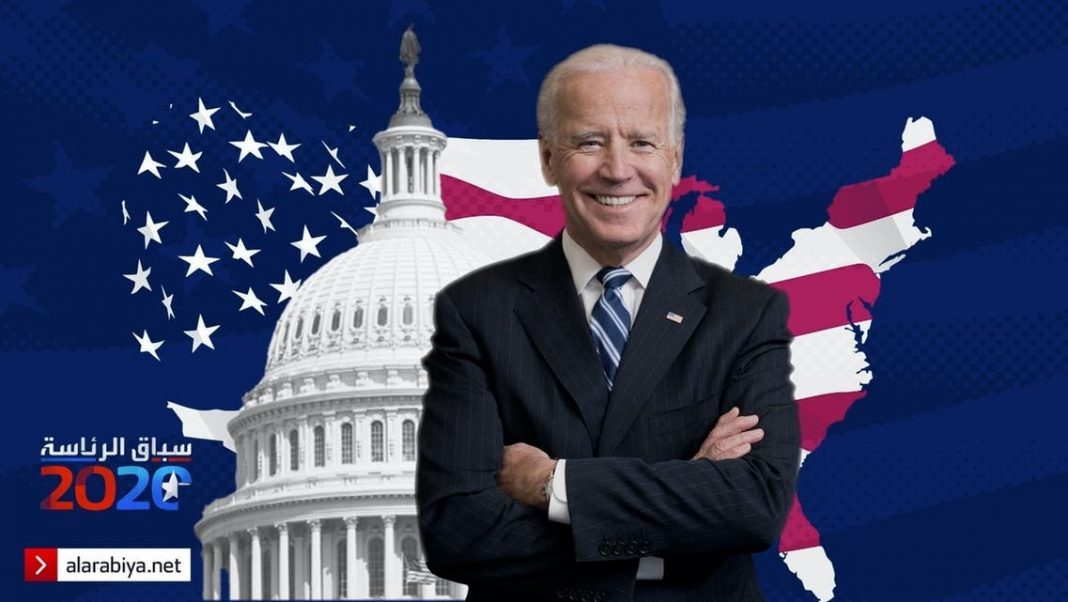The Challenges of Post-Electoral America and the Abraham Lincoln Paradigm
Charles Elias Chartouni/November 08/2020
شارل الياس شرتوني: تحديات أميركا ما بعد الإنتخابات ونموذج ابراهام لنكولن
“ With malice towards none, with charity for all, with firmness in the right as God gives us to see the right, let us strive on to finish the work we are in, to bind the nation’s wound, to care for him who shall have borne the battle and his widow, and his orphan, to do all which may achieve and cherish a just and lasting peace among ourselves and with all nations. ” Abraham Lincoln ( 2d inaugural address, March 4th 1865 )
Elections are over, in spite of all the intricacies of the incomplete vote counting, eventual legal tussles, and flying tempers all along the political spectrum, divisive issues and extreme polarization are still present more than ever, and need to be addressed by the Nation and the political parties at stake.
Cultural wars and their incidence on American historiography and public policy enactments, Civil War ( 1861-1865 ) lingering animosities and political scars, the Union’s troubled political fortunes and constitutional controversies, the absence of consensus over immigration, integration and their attending national security issues, the impact of unregulated globalization and its incidence on equitable trade, national regulations, demographic dynamics, economic and social equilibriums, governance and institutional configurations ( Federal and States relationships ), the management of multiculturalism and its political grammar, and the issues of a hypermodernity and its shifting technological, economic, financial and occupational paradigms are shaping the political agenda of the alternating administrations, and defining the forthcoming public policy themes and dynamics.
The framing of the domestic political debate correlates with the definition of the international challenges that are highly conditioned by the outcomes of national consensuses, the dwindling of strident political polarization and the rehabilitation of a time-honored tradition of political trans-partisanship: the issues of the global International architecture created by the US after WWII and the future of multilateralism, the renegotiation of global treaties ( environmental, trade, strategic, security, international justice…. ) highlighted by the Paris treaty on Climate Change, the trade agreements with China, the overhaul of the Trans-Pacific Partnership ( TPP ) and the NAFTA accords, the NATO updating, the Nuclear treaties with Russia, North Korea and Iran, the stabilization of a volatile Middle East ( Yemen, Lybia, Iraq, Syria, Lebanon, Arabia and the Gulf, … ) , the containment of rogue States all across the global geopolitical spectrum ( Turkey, Iran, Azerbaijan, Venezuela, Cuba, Nicaragua, Qatar, … ), the defeat of radical Islamism, the restructuring of the Intra-continental relationships within the Americas, and the engagement of transitional justice scenarios in Syria, Iraq, Lebanon, Palestinian Territories, Lybia, Yemen, Venezuela….,.
President-elect Biden is an old veteran of Beltway politics and advocate of Bipartisanship ( My personal experience with him is quite instructive, when he invited me jointly with late Senator Richard Lugar/Republican, to address the Foreign Affairs committee to advocate for the Syria Acountability Act and Lebanese Sovereignty Restoration, December 12, 2003 ) and a well seasoned expert in international politics since his days as head of the Senate Foreign Affairs Committee.
His speech upon electoral victory bespeaks his principled commitment to uphold his obligations as President of the United States of America, transcend partisan politics and the heated political environment which surrounded the campaign, and set himself aside from their polarizing agendas and effects.
This declaration of intentions is quite credible at his personal level, but at a distance from the ideological hues which prevail among the democratic party’s left, its strident sectarianism and disparagement of American patriotism, the contentious nature of American nativism and its extremist versions which, at best, looks askance at the threadbare notion of national and civic affiliation featured by identitary leftism, or reject it bluntly.
The commitment to bipartisanship should pave the way to open discursive engagement, consensus and trust building, if we were to avoid the aporias of ideological politics and their malevolent instrumentalization, and be highlighted through working coalitions, administration trans-partisan nominations, legislative joint venturing and coordinated moves on consensual political issues.
The rough political environment of the last four years ought not be ascribed to the symptomatic and unconventional modus operandi of populist President Donald Trump, but traced to the unraveling of the American Covenant and it’s overlapping consensuses.
The reweaving of the American canopy and the re-elaboration work it behooves, on the basis of the original meta-narrative and constitutional legacy, should set the groundwork for a new political course that dampens the collisions between clashing worldviews, systemic societal transformations and inchoate consensuses. President-elect should avoid the traps of a clone presidency which replicates the Obama Presidency template, its initial ideological overtones and self-righteousness, Foreign policy failures ( especially in the Middle East, Cuba, Venezuela …. ), racial framing which undermined the imposing civil rights legacy of Martin Luther King, and gave way to African-American radicalism and rabid leftist and Islamic fascisms ( Antifa, Black lives matter, Nation of Islam and Muslim Brotherhood …,.), and its blatant sectarianism.
The arduous tasks that await Joe Biden should be instantly addressed, if we were to avoid the pitfalls of partisan agendas that may sink his presidency at its onset, and set Congress on a trajectory of filibustering and systemic stonewalling.
The eventual reluctance of President Trump to concede electoral defeat and organize an orderly transition, should be countervailed by formal commitment to constitutionality, open channels of communication between Democrats and Republicans, and readiness to engage a new course of political interaction which puts an end to the state of consolidated civil warfare.
Mature and appeased democracies are always steered on their middle, and necessitate principled commitments and unambiguous political courses, prevarication, power pathologies, and murky configurations have no place in Liberal democracies. The greatness of the American national legacy, its lore of political wisdom, and solid institutions are the true anchors in times of high turbulence and great uneasiness.




















